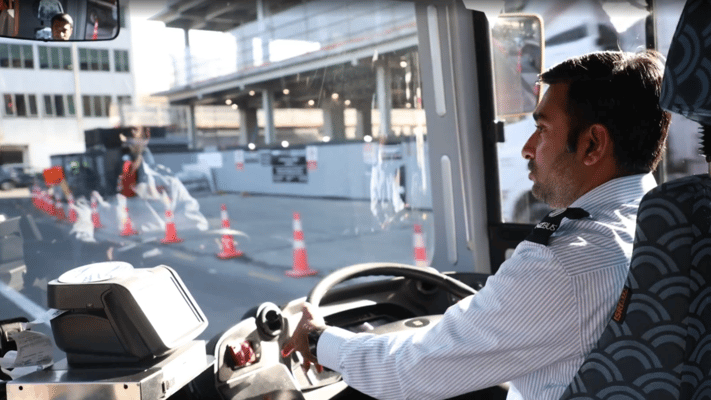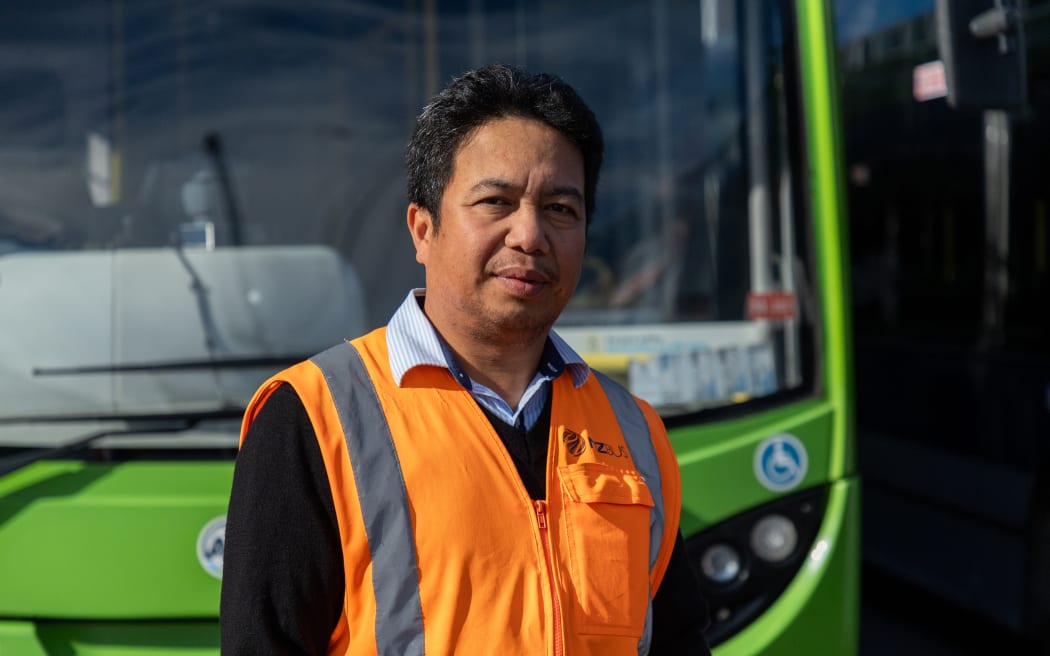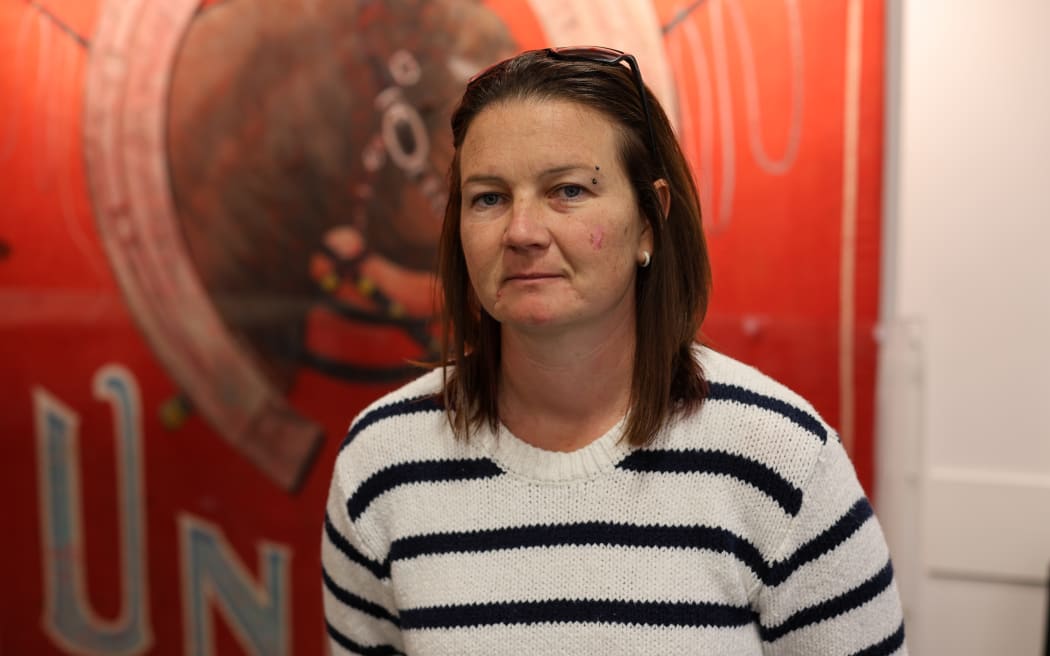Violence Against Auckland Bus Drivers & Passengers Rising?

Violence towards drivers and passengers on public transport appears to be on the rise in the country's largest city.
On Friday, a 16-year-old student received severe facial injuries following an attack by an unknown woman on an Auckland Transport bus in East Auckland.
A couple of months earlier, a man was charged with assault after punching and kicking a bus driver in the Auckland suburb of Ponsonby.
According to AT, attacks on bus drivers have more than doubled in the past two years.
While 24 fewer incidents were reported last year compared to 2022, there was an increase in reports of violence against bus drivers.
Data provided to RNZ in February showed that AT reported 24 assaults on bus drivers in 2022, ranging from minor to severe, along with more than 50 accounts of verbal abuse.
In 2023, AT reported 51 assaults and more than 120 verbal abuse cases.
Speaking at a meeting Wednesday with the teenage victim of last week's attack in Auckland, Transport Minister Simeon Brown said he wanted to be assured that AT staff followed the proper protocols during the attack.
"Ultimately, this is unacceptable," Brown said.
The transport agency has been battling a severe shortage of bus drivers since the emergence of Covid-19.
At the height of the crisis, the city was short 578 drivers out of the 2306 needed to maintain its network.
However, the issue was resolved in August last year, thanks to a recruitment drive that attracted drivers from overseas.

Giya Jose had four years of experience driving buses before relocating to New Zealand. Photo: RNZ / Blessen Tom
"I had a passion for driving since my childhood," said Giya Jose, 34, a bus driver for Kinetic NZ in Auckland.
Jose relocated to New Zealand after the operator recruited him from Kerala, India, last year.
With four years of experience driving trucks and buses in India, he was thrilled when he received the job offer.
"I came here alone at first, but then my wife got an open work visa, and my family is here now," he said.
Jose initially struggled to learn the bus routes he was assigned but was able to familiarise himself with the roads with practice.
"It took me a while to learn the road codes and rules around roundabouts," he said.
Harry Fernandez needed to learn to drive on the left-hand side to pass his competency tests, as road users in the Philippines drive on the opposite side.
Having worked as a bus driver in Manila, the 46-year-old arrived in Auckland in February 2023.
"We drive automatic transmission but, in Manila, it was manual," he said.
Fernandez also initially struggled to navigate the routes he was assigned.
"One time I lost my way, so I apologized to my passengers, told them that I'm new in New Zealand, and they told me, 'It's okay'," he recalled.
Jose has also struggled with language barriers on occasion, particularly understanding different accents.
"In the beginning, it was really hard to understand slang and accents," he said. "On many occasions, I had to repeat myself multiple times. It's hard, but I try my best to answer the queries of my passengers."

Harry Fernandes arrived in Auckland in February 2023 after being recruited from Manila. Photo: RNZ / Blessen Tom
Aggressive passengers
Both drivers have encountered unruly passengers working in New Zealand.
"Some of the passengers are rude," Fernandez said.
"Sometimes they enter the bus without AT Hop cards and just go inside. Sometimes they press the button to open the doors and go out."
In such situations, Fernandez typically allows the passenger to leave without confronting them.
Jose shares similar experiences.
"Most of the passengers are awesome, but there are a few who are rude and abusive to drivers," he said.
Although he hasn't personally experienced abuse, he has heard stories from his colleagues.
Jose said all drivers received de-escalation training, with the operator providing a set of established protocols and contact numbers in times of emergency.
Hayley Courtney, a First Union organiser, said many drivers feared for their safety and were concerned about their working conditions.
"Auckland is in crisis," Courtney said, adding that the bus sector was also in crisis nationwide.
"We've had a lot of empty promises about protection provisions in the past few years," Courtney said. "Now we have some commitment from AT, but there's no urgency to it."
She said many new drivers were migrants who were hesitant to speak up because their visas were tied to the company.
Courtney also claimed the current emergency procedures at many operators were inadequate.
"That's why many offenders are able to flee, and there's a significant lapse of time before help arrives," she said.
"In some instances, drivers are verbally berated and receive no assistance, leading to underreporting because they feel defeated."

Hayley Courtney is a First Union organiser. Photo: RNZ / Blessen Tom
Screens for driver safety
To enhance driver safety, Auckland Transport plans to retrofit 80 percent of its bus fleet with transparent screens that will act as a barrier to protect them from passengers over the next two years.
"We are already working with bus operators to retrofit 33 buses in the city center and South Auckland," said Rachel Cara, AT's group manager of Public Transport Operations.
Cara said the agency collaborated with bus operators and police on safety initiatives, deploying personnel to public transport hubs as well as on buses, ferries and trains to manage security.
"All buses are equipped with CCTV, GPS and panic buttons that record sound and connect directly with the bus depot, allowing for a quick response and guidance to emergency services," she said.
Cara said that drivers received de-escalation training and are advised not to engage in confrontational situations.
"Drivers cannot detain passengers or prevent them from boarding or exiting the bus," she said.
Stephen Mckeefry, chief operating officer at Kinetic NZ, said the company encouraged drivers to suggest improvements through various formal and informal channels.
"We have regular town hall sessions with management and an open-door policy for workers to raise issues," he said.
Courtney said everyone deserved to work comfortably and safely.
Both Jose and Fernandez are committed to driving buses in Auckland as long as they can.
Passengers only need to remember a final tip from Jose.
"Always greet the driver with a smiling face," he said. "It boosts our energy."
Transport minister wants safety protocols reviewed after bus attack on Auckland teenagerPolice seek witnesses after Auckland teenager on bus assaulted with metal rodExtra security called in after spike of crimes at bus and train stationsIncrease in attacks has Auckland bus drivers worried they may not come home - union
Violence towards drivers and passengers on public transport appears to be on the rise in the country's largest city.
On Friday, a 16-year-old student received severe facial injuries following anattack by an unknown womanon an Auckland Transport bus in East Auckland.
A couple of months earlier, a...
Violence towards drivers and passengers on public transport appears to be on the rise in the country's largest city.
On Friday, a 16-year-old student received severe facial injuries following an attack by an unknown woman on an Auckland Transport bus in East Auckland.
A couple of months earlier, a man was charged with assault after punching and kicking a bus driver in the Auckland suburb of Ponsonby.
According to AT, attacks on bus drivers have more than doubled in the past two years.
While 24 fewer incidents were reported last year compared to 2022, there was an increase in reports of violence against bus drivers.
Data provided to RNZ in February showed that AT reported 24 assaults on bus drivers in 2022, ranging from minor to severe, along with more than 50 accounts of verbal abuse.
In 2023, AT reported 51 assaults and more than 120 verbal abuse cases.
Speaking at a meeting Wednesday with the teenage victim of last week's attack in Auckland, Transport Minister Simeon Brown said he wanted to be assured that AT staff followed the proper protocols during the attack.
"Ultimately, this is unacceptable," Brown said.
The transport agency has been battling a severe shortage of bus drivers since the emergence of Covid-19.
At the height of the crisis, the city was short 578 drivers out of the 2306 needed to maintain its network.
However, the issue was resolved in August last year, thanks to a recruitment drive that attracted drivers from overseas.

Giya Jose had four years of experience driving buses before relocating to New Zealand. Photo: RNZ / Blessen Tom
"I had a passion for driving since my childhood," said Giya Jose, 34, a bus driver for Kinetic NZ in Auckland.
Jose relocated to New Zealand after the operator recruited him from Kerala, India, last year.
With four years of experience driving trucks and buses in India, he was thrilled when he received the job offer.
"I came here alone at first, but then my wife got an open work visa, and my family is here now," he said.
Jose initially struggled to learn the bus routes he was assigned but was able to familiarise himself with the roads with practice.
"It took me a while to learn the road codes and rules around roundabouts," he said.
Harry Fernandez needed to learn to drive on the left-hand side to pass his competency tests, as road users in the Philippines drive on the opposite side.
Having worked as a bus driver in Manila, the 46-year-old arrived in Auckland in February 2023.
"We drive automatic transmission but, in Manila, it was manual," he said.
Fernandez also initially struggled to navigate the routes he was assigned.
"One time I lost my way, so I apologized to my passengers, told them that I'm new in New Zealand, and they told me, 'It's okay'," he recalled.
Jose has also struggled with language barriers on occasion, particularly understanding different accents.
"In the beginning, it was really hard to understand slang and accents," he said. "On many occasions, I had to repeat myself multiple times. It's hard, but I try my best to answer the queries of my passengers."

Harry Fernandes arrived in Auckland in February 2023 after being recruited from Manila. Photo: RNZ / Blessen Tom
Aggressive passengers
Both drivers have encountered unruly passengers working in New Zealand.
"Some of the passengers are rude," Fernandez said.
"Sometimes they enter the bus without AT Hop cards and just go inside. Sometimes they press the button to open the doors and go out."
In such situations, Fernandez typically allows the passenger to leave without confronting them.
Jose shares similar experiences.
"Most of the passengers are awesome, but there are a few who are rude and abusive to drivers," he said.
Although he hasn't personally experienced abuse, he has heard stories from his colleagues.
Jose said all drivers received de-escalation training, with the operator providing a set of established protocols and contact numbers in times of emergency.
Hayley Courtney, a First Union organiser, said many drivers feared for their safety and were concerned about their working conditions.
"Auckland is in crisis," Courtney said, adding that the bus sector was also in crisis nationwide.
"We've had a lot of empty promises about protection provisions in the past few years," Courtney said. "Now we have some commitment from AT, but there's no urgency to it."
She said many new drivers were migrants who were hesitant to speak up because their visas were tied to the company.
Courtney also claimed the current emergency procedures at many operators were inadequate.
"That's why many offenders are able to flee, and there's a significant lapse of time before help arrives," she said.
"In some instances, drivers are verbally berated and receive no assistance, leading to underreporting because they feel defeated."

Hayley Courtney is a First Union organiser. Photo: RNZ / Blessen Tom
Screens for driver safety
To enhance driver safety, Auckland Transport plans to retrofit 80 percent of its bus fleet with transparent screens that will act as a barrier to protect them from passengers over the next two years.
"We are already working with bus operators to retrofit 33 buses in the city center and South Auckland," said Rachel Cara, AT's group manager of Public Transport Operations.
Cara said the agency collaborated with bus operators and police on safety initiatives, deploying personnel to public transport hubs as well as on buses, ferries and trains to manage security.
"All buses are equipped with CCTV, GPS and panic buttons that record sound and connect directly with the bus depot, allowing for a quick response and guidance to emergency services," she said.
Cara said that drivers received de-escalation training and are advised not to engage in confrontational situations.
"Drivers cannot detain passengers or prevent them from boarding or exiting the bus," she said.
Stephen Mckeefry, chief operating officer at Kinetic NZ, said the company encouraged drivers to suggest improvements through various formal and informal channels.
"We have regular town hall sessions with management and an open-door policy for workers to raise issues," he said.
Courtney said everyone deserved to work comfortably and safely.
Both Jose and Fernandez are committed to driving buses in Auckland as long as they can.
Passengers only need to remember a final tip from Jose.
"Always greet the driver with a smiling face," he said. "It boosts our energy."
Transport minister wants safety protocols reviewed after bus attack on Auckland teenagerPolice seek witnesses after Auckland teenager on bus assaulted with metal rodExtra security called in after spike of crimes at bus and train stationsIncrease in attacks has Auckland bus drivers worried they may not come home - union










Leave a Comment